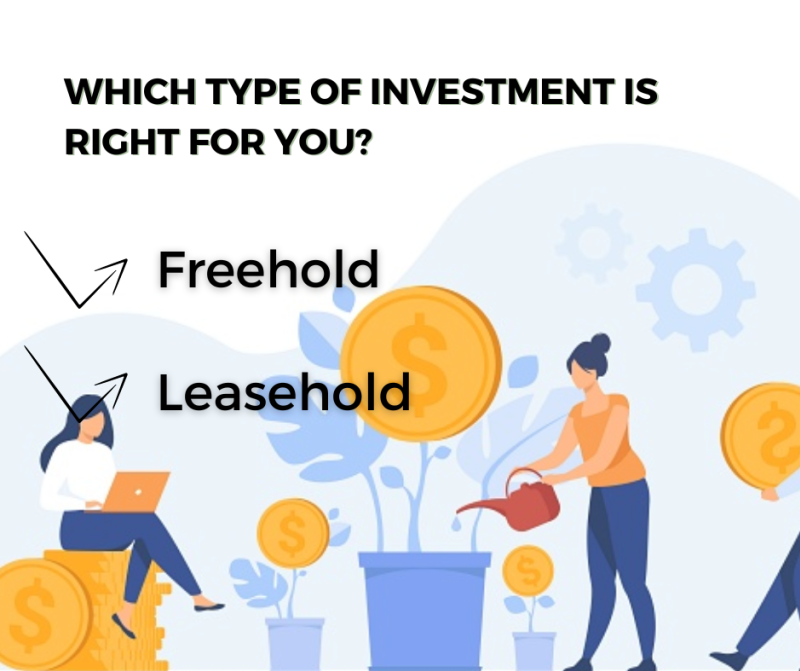Login/Register

Created : 13 Feb 2024
Updated : 13 Feb 2024
Leasehold vs Freehold
Which type of investment is right for you?
What is the difference between Leasehold and Freehold ?
• Freehold refers to real estate. Where the holder owns the property completely
• Leasehold refers to real estate. Held through lease payment to obtain long-term leasehold rights within a specified period of time (not more than 30 years)
1. Leasehold?
"Condo Leasehold" refers to a condominium property where ownership is held for a specific period, and the owner must pay rent according to the specified lease terms. When the lease agreement expires, the ownership reverts to the landlord immediately. Condo Leasehold has the following characteristics:
2. Freehold?
"Condo Freehold" refers to a condominium property where the ownership is held indefinitely. In other words, individuals who invest in this type of condominium will have perpetual ownership rights without any specified end date. Additionally, those who invest in a Freehold Condo receive various rights, including:
Investing in a condo, Leasehold or Freehold, which type is suitable for who?
Indeed, there is no one-size-fits-all formula for successful condominium investments, as it greatly depends on individual preferences and requirements. Comparing various aspects of Leasehold and Freehold condos can help highlight the differences that may align with the specific needs of each investor. Here are some considerations:
"Foreign Ownership"
"Asset Value"
The value of Freehold condominiums is expected to trend higher in the future, following the upward trajectory of land prices. This is in contrast to Leasehold condominiums, where the appreciation may be comparatively lower.

